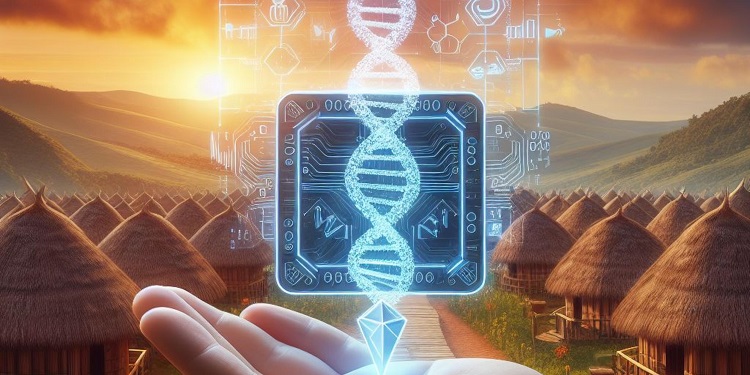In an examination of protecting Indigenous genetic data, the article delves into the innovative integration of blockchain technology. It emphasizes how this technology can enhance privacy, reinforce control, and uphold sovereignty. By elucidating both the advantages and obstacles of this approach, it highlights blockchain’s capacity to revolutionize the handling and sharing of sensitive genetic information in alignment with Indigenous principles.
Challenges Encountered in Genetic Data Management
In the age of extensive data and advanced genomics, the ethical, legal, and societal hurdles associated with handling and conserving genetic information are pronounced, particularly for Indigenous communities. The article, titled “Digital Sovereignty: Safeguarding Indigenous Genomic Data with Blockchain Technology,” explores the pioneering use of blockchain technology to safeguard Indigenous genetic data, ensuring confidentiality and respecting sovereignty.
Convergence of Science and Tradition
Genetic data provides valuable insights into genetic predispositions, ancestral narratives, and the evolutionary trajectory of populations. For Indigenous communities, this data carries more than just scientific significance; it embodies cultural identity, ancestral lineage, and traditional wisdom, underscoring the importance of safeguarding it as a matter of sovereignty and dignity.
Confronting Historical Challenges
The historical backdrop of genetic data collection and storage has been marred by issues such as breaches of consent, misuse, and unauthorized access. Incidents of genetic data exploitation without explicit consent continue to raise concerns regarding ethical research practices and infringements on community rights.
The Potential Impact of Blockchain
Blockchain technology emerges as a robust solution to these challenges. Functioning as a decentralized digital ledger, blockchain records transactions across multiple computers in an immutable manner. This technology offers a transparent, secure, and tamper-proof approach to record-keeping.
Empowering Indigenous Governance
Through blockchain, Indigenous communities gain unprecedented control over their genetic data. Smart contracts, which are self-executing agreements with predefined terms, can dynamically oversee consent management. Communities can establish conditions for accessing or utilizing their genetic data, with all transactions meticulously documented on the blockchain, ensuring transparency and compliance with agreed-upon terms.
Balancing Privacy and Accessibility
Blockchain facilitates the anonymization of genetic data to safeguard individual identities while enabling data accessibility for research purposes. By encrypting data and restricting access through private keys, blockchain ensures the sharing of genetic information without compromising sensitive personal details.
Global Initiatives and Challenges
Numerous international initiatives are currently exploring the utilization of blockchain to protect Indigenous genetic data. These initiatives showcase how blockchain can be leveraged to regulate access to sensitive information and ensure that all interactions with genetic data adhere to Indigenous laws and traditions. However, challenges such as the digital divide, technological infrastructure prerequisites, and the harmonization of traditional knowledge systems with digital solutions necessitate attention. Furthermore, continuous engagement with Indigenous communities is vital to align technological implementations with community values and requirements.
Towards a Respectful Future
The future prospects of blockchain in safeguarding Indigenous genetic data appear promising but demand meticulous and deliberate implementation. As technology advances, so should the regulatory frameworks governing its utilization, ensuring they are grounded in principles of equity, respect, and mutual benefit.
Conclusion: Advancing Fair Research Practices
The incorporation of blockchain technology to protect Indigenous genetic data marks a significant stride towards honoring and preserving the sovereignty of Indigenous communities over their genetic legacy. It not only offers a means to fortify sensitive information but also empowers these communities to independently manage their data. As this technology evolves, it holds the potential to revolutionize genetic research and data security, paving the way for more respectful and equitable scientific exploration.

